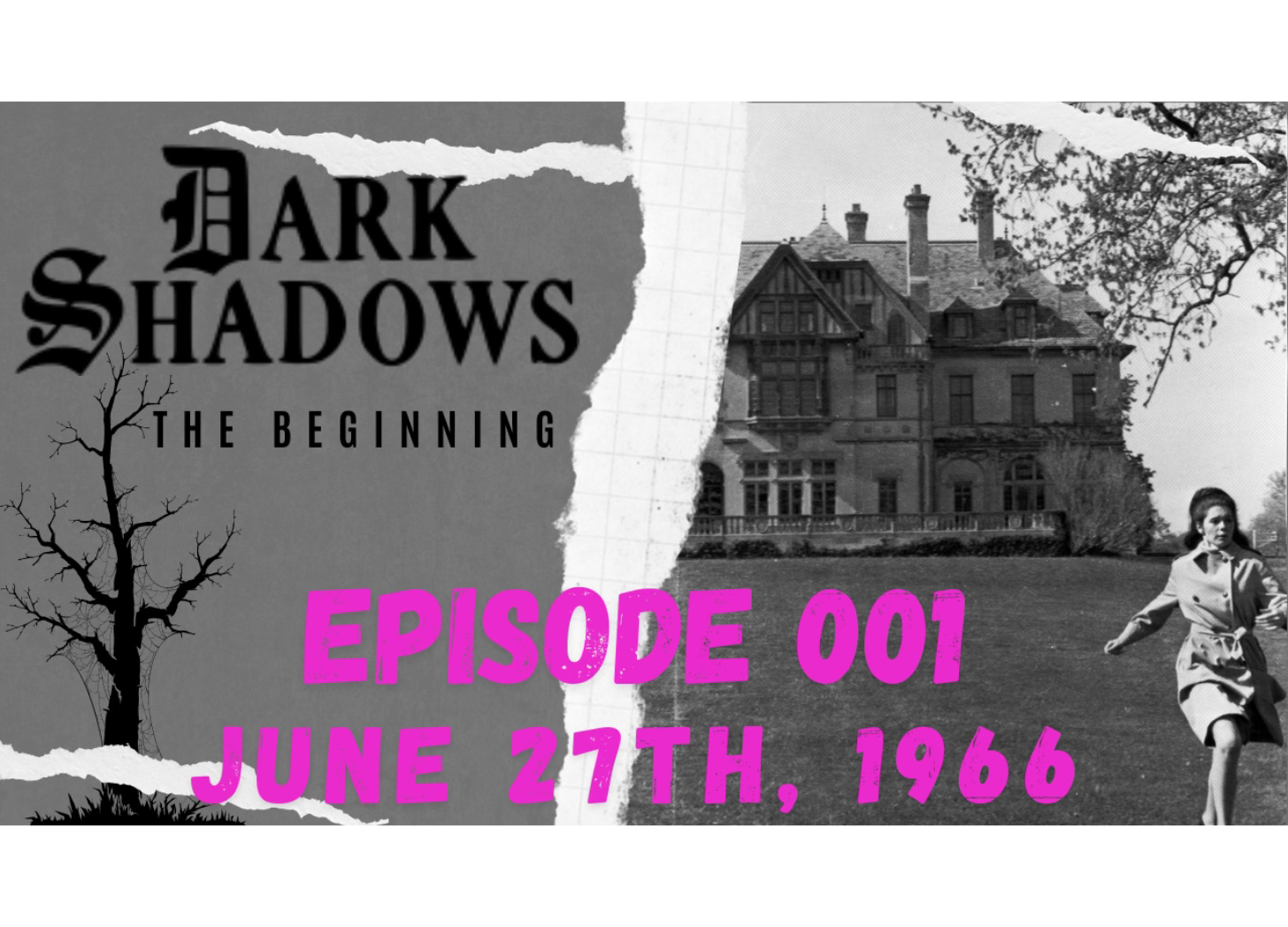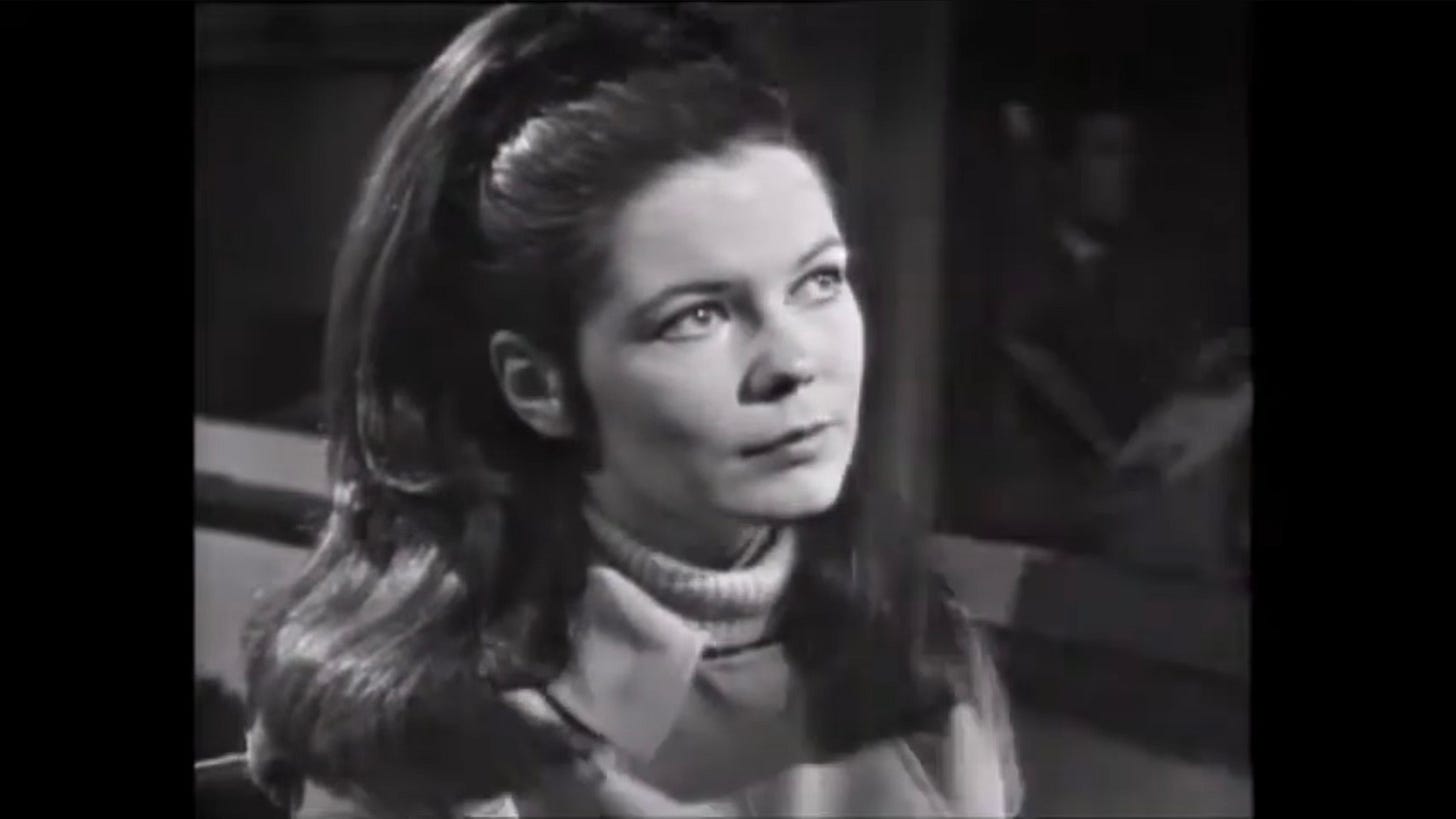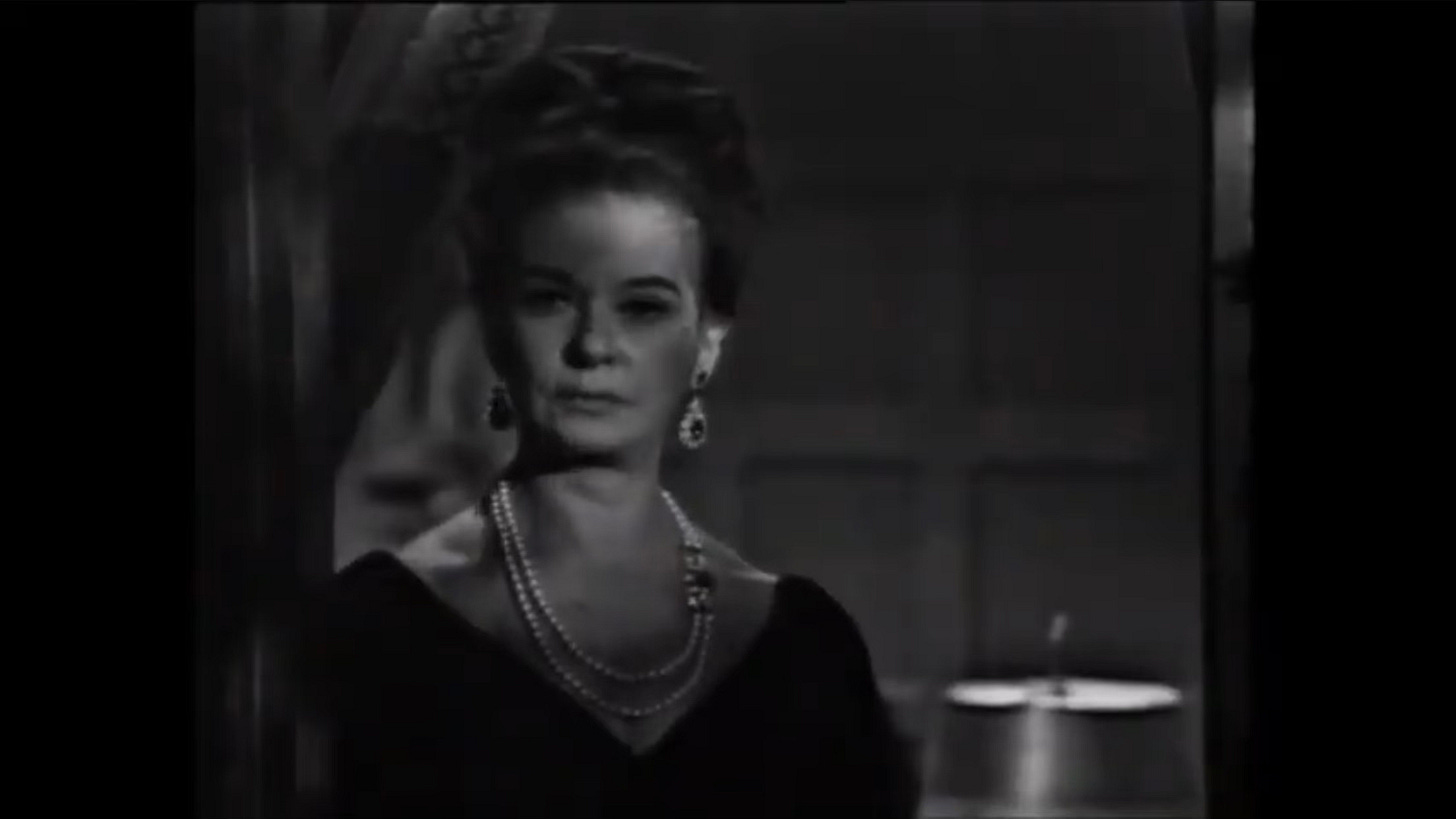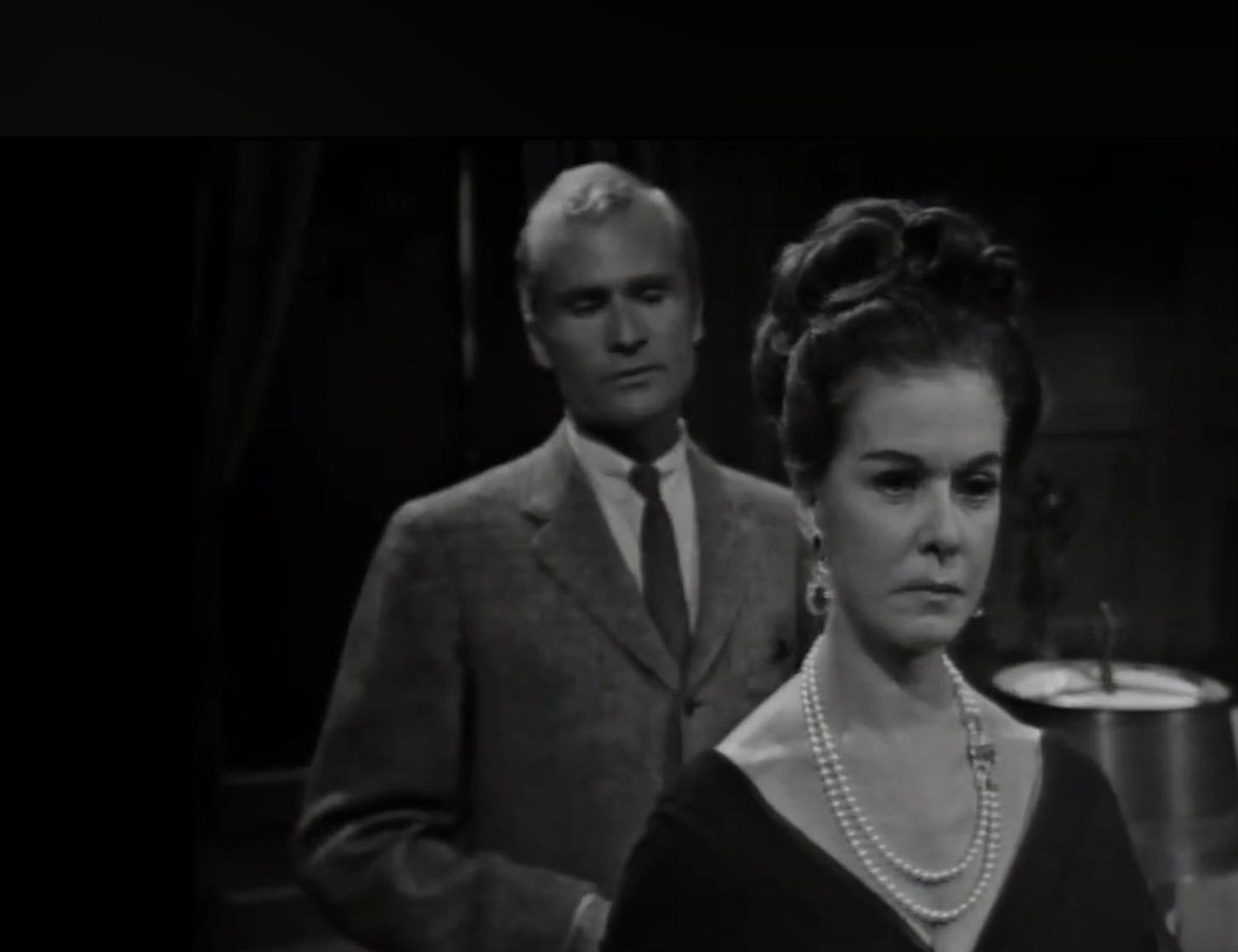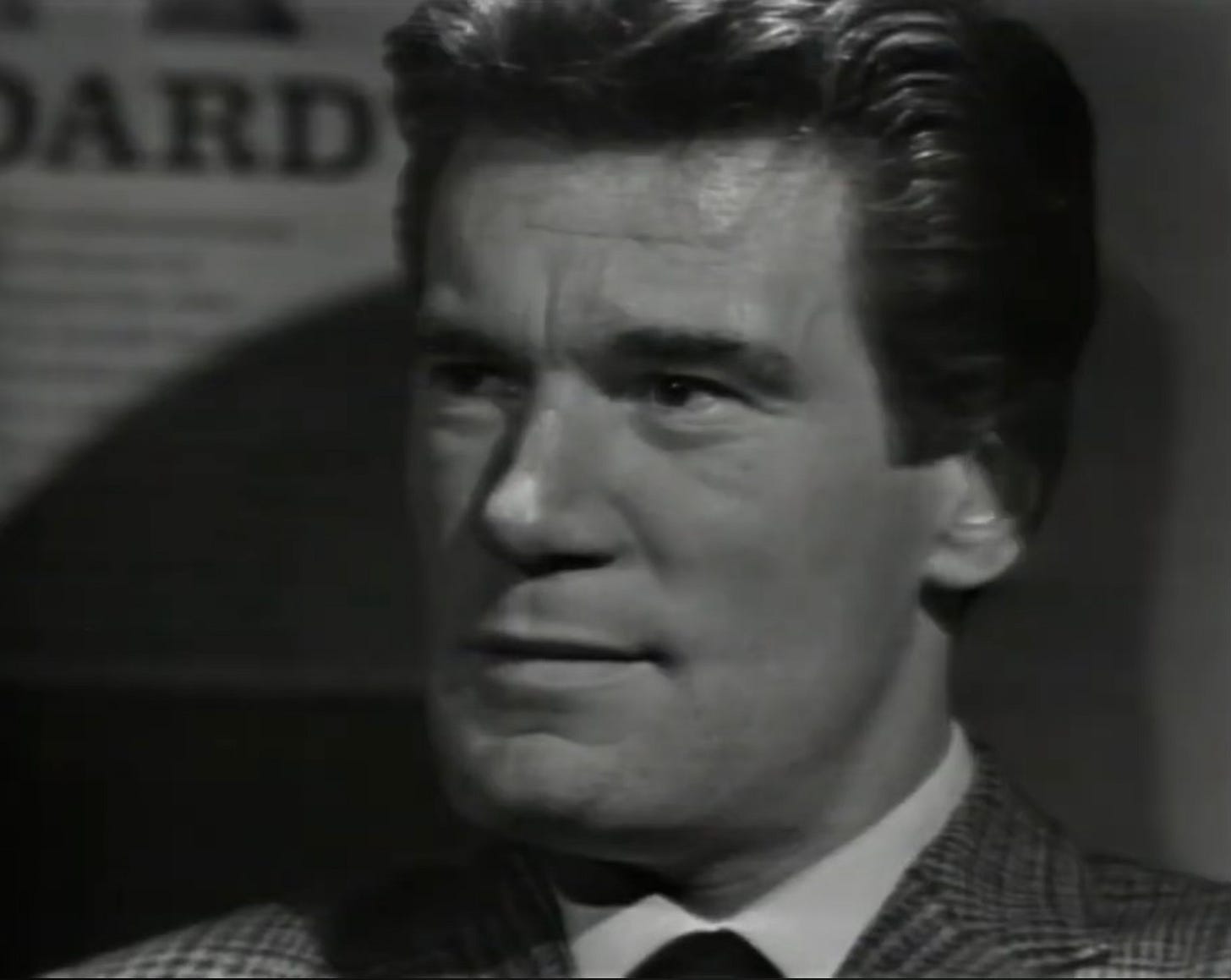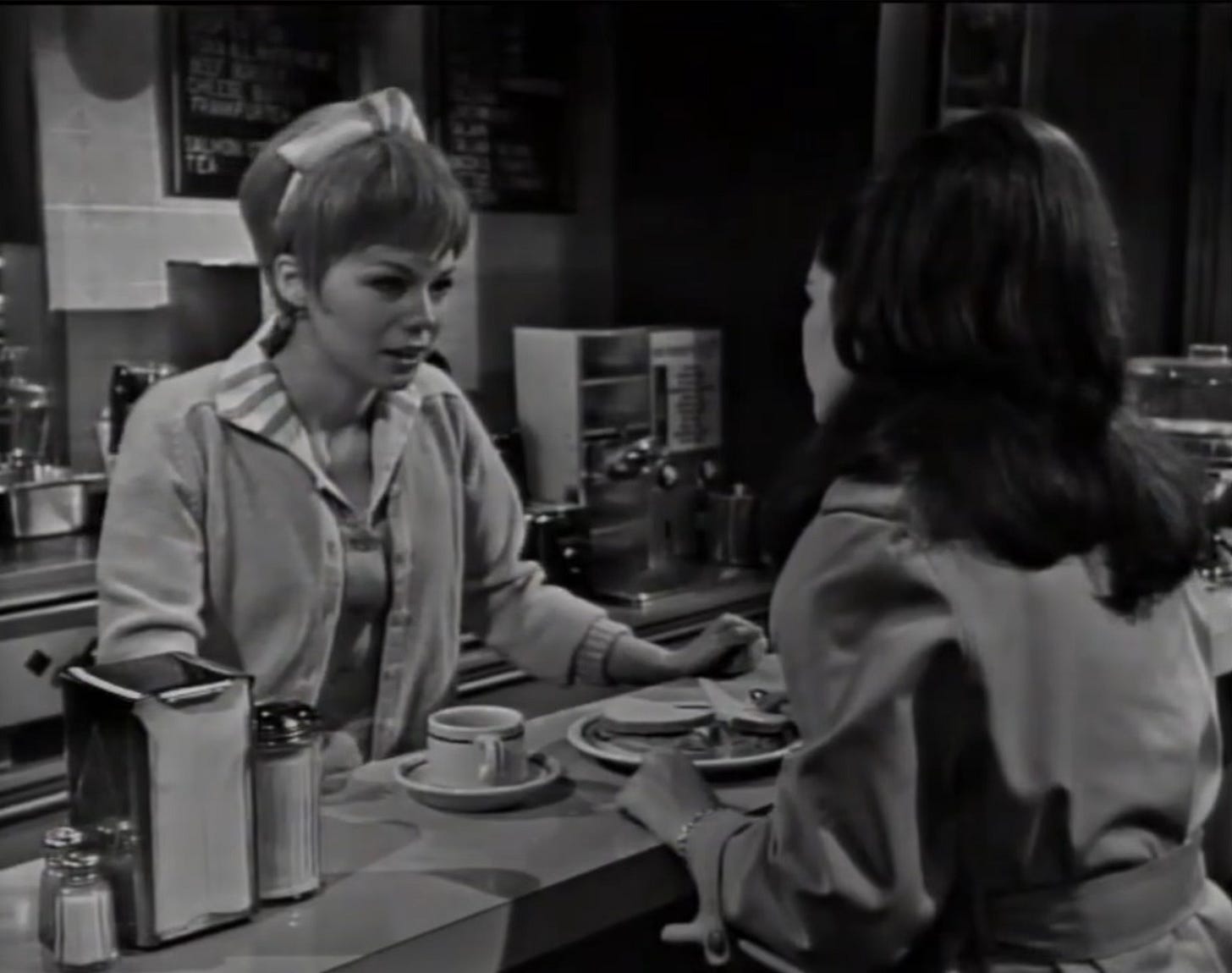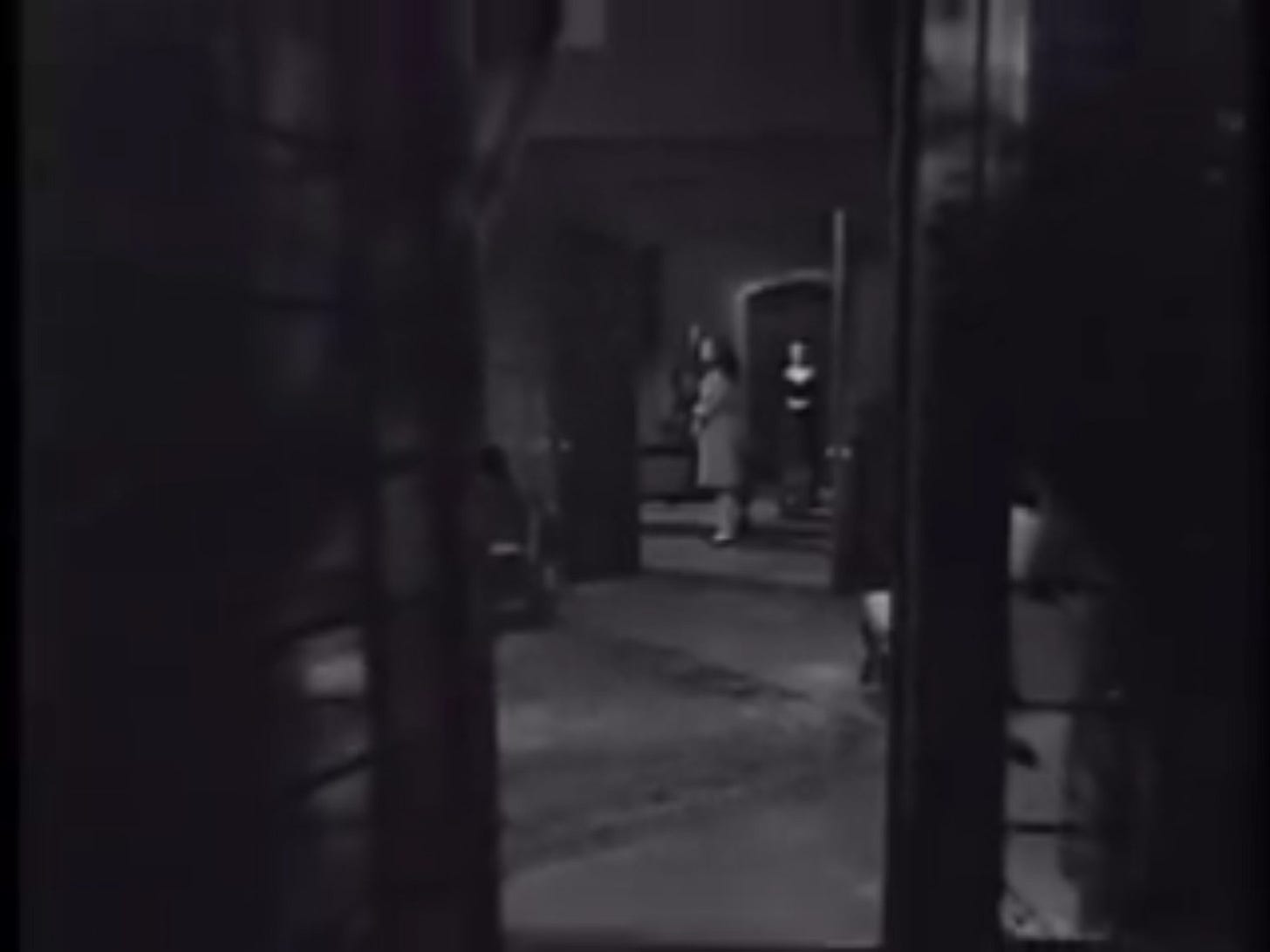Her Name is Victoria Winters
Reflections on Dark Shadows: The Beginning S1E1 *** With Spoilers ***
The inaugural episode of Dark Shadows opens with the steady rumblings and blinding lights of an oncoming train. As viewers, we enter this world by seeing the fast-moving, mechanical beast coming straight at us - before the camera transitions to a closeup of a passenger. This intimate shot of the show’s pensive protagonist, can only be rivaled but the opening monologue - a monologue that will set the scene for the entirety of the show.
“My name is Victoria Winters. My journey is beginning. A journey that I hope will open the doors of life to me and link my past to my future. A journey that will bring me to a strange and dark place, to the edge of the sea to a house high above Widow’s Hill. A house called Collinwood. A world I’ve never known, with people I’ve never met. People who tonight are still only shadows in my mind, but who will soon fill the days and nights of my tomorrows.”
In this close-up of Victoria (Vickie), we are able to see the reflection of another passenger in the window. This passenger’s name is Burke Devlin - who will serve as the first major antagonist to the Collins Family. Little does Victoria know, but one of the shadows in her mind (and a significant person in her future) is only a few seats away.
In my opinion this image works to visually establish a link between these two characters. Aside from the eventual romantic entangling - Vickie and Burke work well as opposites to balance the plot. Consider that Vickie has no past, while Burke has a past he would like to forget. Vickie is running towards Colinsport in the hope of finding a place to belong. Burke on the other hand was exiled from Collinsport, and sees it as a place where he used to belong - but no longer does.
Vickie serves as a beacon of hope - looking toward the future. Burke serves as a warning - reminding us of the past.
As we hear Victoria’s thoughts, the view transitions to show another woman as she looks out an ornate and expansive window. Here is Elizabeth Collins Stoddard, the matriarch of Collinwood - looking just as pensive as Vickie. She also stares out into the night - and into the future.
Similar to first seeing Burke in a reflection, after having time to focus on Elizabeth, the camera cuts to show her brother Roger Collins, who makes a pit stop at the brandy decanter before joining her at the window. One could argue that the decanter is also a major character in the show, and one that is beloved by several of the household members.
The two siblings discuss the arrival of Victoria - each at odds with the other about the circumstances. Elizabeth who has sent for her, encourages Roger to spend his time checking on his son - to which Roger replies the “little monster” is sleeping. To underscore Roger’s personality, we also hear him defending the term monster by his claiming to chose all his words with “infinite precision.”
In this small exchange we can clearly see how the two siblings differ. Elizabeth is stoic and resolute, while Roger is expressive and prone to wielding wit, charm, and sarcasm to get what he wants. When this fails - he does not shy away from trying to shame or bully others. We see this when he asks his sister what good Vickie can do for the family aside from comforting her “when the shudders creak.”
This is quickly followed by his warning (working similar to Burke’s purpose) “With all our ghosts, we don’t need any strangers in this house and you know it.”
Unfortunately for Roger - Elizabeth is not to be moved.
An ongoing theme we will see in Dark Shadows as the show progresses, is how often women in the Collins family end up in more powerful positions than the men - something I will discuss at greater length when discussing the Collins Family Curse.
The scene ends with Elizabeth striding out of the drawing room and an up-close shot of Roger, looking forbidding, as he breaks the empty brandy glass in his hand. Between his brining up the family “ghosts” and his reaction to letting Ms. Winters come to Collinwood - the viewers are acutely aware of impending danger - albeit -whether it is of paranormal means or not is still unknown.
At this crucial juncture, the audience is introduced to the opening theme music and iconic images of a restless ocean; these will remain unchanged throughout the show.
Thus, in under four minutes - we have been given an incredible amount of information, including an introduction to four major players, the tone of this gothic romance, and plenty of tension for the ensuing plot.
In this next scene, we are one again aboard the train. This time we start with a porter informing Burke Devlin (still a mysterious stranger to us) that his stop is approaching within ten minutes. While we get a close of up Burke’s face, he shows a villainous grin but does not respond to the porter or even look at him. His disregard is so evident that the porter even utters a second “Mister?” because he is unsure that he has been heard.
While this scene could be argued as simply a means of showing Burke’s taciturn personality, I think it is equally important that it highlights the friendliness of Victoria. Immediately following his rudeness, the camera slides over to show Victoria engaged in a conversation with a stranger. Not only is she speaking to the woman, but she is looking at her and her body is turned toward the woman - showing an openness to connection. One again, we see Vickie and Burke in opposition to one another.
This doesn’t mean that Vickie isn’t also prone to getting lost in her thoughts, but rather the impact of what they each focus on.
In this segment, we see her past conversation with Ms. Hopewell about receiving a letter from Elizabeth Stoddard - asking her to come work as a governess at Collinwood. In addition to giving us Vickie’s backstory - it also serves to show that difference of her mindset from Burkes. Once she comes out of her revelry, she honestly and sincerely explains her lapse in listening.
Burke, on the other hand, is incapable of connecting with others around him because his mind is solely focused on getting revenge (his story line being inspired by The Count of Monte Cristo) while Vickie is dreaming of a new life and new adventures (like we see in Jane Eyre).
Once Vickie exits the train, we see her bravely watching the train pass by. Now she only has the present moment and her uncertainty as she approaches the handsome stranger on the platform and makes her acquaintance with the brooding Burke Devlin.
This interaction intensifies her anxiety because of Burke’s strange response. After asking whether or not Collinsport has a taxi service, he gives her a melodramatic reply: “I wouldn’t know what they have here…NOT ANYMORE.” His hard expression in this scene could rival any given by James Cagney - a perfect draw for fans of film noir.
Burke does soften a bit, however, and makes a joke about witches and unicorns before offering Vickie a ride to Collinsport Inn. Turning cryptic again, he utters one of the most well known phrases from the series (and one I will be writing about at length in a later post):
“Welcome to the beginning and the end of the world, Miss Winters.”
On arriving at the Collinsport Inn, Burke advises Vickie to get a bus back to Bangor and then a train back to New York - presumably because he has has reason to believe that going to Collinwood is not a good idea.
We then see this uncomfortable scene where Mr. Wells, the Innkeeper, remembers Burke (and affectionately so), lights up when he sees him, and goes in for a hug. Burke stops him by harshly repeating his demands, acting completely indifferent to the intimacies between them. He also states, “I don’t remember anyone,” when Mr. Wells mentions Harry Jones, the local cab driver.
Burkes then hastily reads a message that had been left for him at the desk; and stalks off after cramming some cash into Mr. Wells hands. Vickie comments on Burke’s strangeness and asserts that Mr. Wells knows him - to which Wells affirms that he has known Burke since he was a child. This leaves no doubt in the viewer’s mind that Burke Devlin has returned to Collinsport with some kind of chip on his shoulder. Whether he is victim or villain has yet to be seen.
The next scene is our first peak into The Blue Whale, Collinsport’s only nightspot; a hole in the wall bar where you can also get a meal and the teenagers can dance to jukebox tunes. For its introduction, it is uncommonly quiet - something I am not sure we will ever see again in this show. This is even explained in the episode as it being about half an hour before the “joint starts jumping.”
Burke has gone here to meet Mr. Strake, the private investigator he hired to get information on the Collins family. It is important to note that this is the first person you really see Burke interacting with, and I don’t think it is an accident that it’s a man on Burke’s payroll.
Thus, Burke is only interested in talking with someone in a lower position than him - one that he can control with his money. This will come up in the next episode as well, when we meet Joe Haskell.
But don’t confuse Burke’s willingness to interact with possible warmth or friendship. He is all business, and tries to brush off Mr. Strake’s attempts at sociability. Strake, however, knows the importance of setting the scene when he doesn’t want his cover blown. He also knows that despite doing a job for Burke, it wouldn’t do well to let this employer hold too much of the power.
He asserts his value to Burke, while also trying to lighten the interaction by stating, “You pay me for my work and I do it. Don’t begrudge a man a chance to buy his employer a drink.” Burke reluctantly agrees but quickly pushes on to find out everything the man has found out about the Collins family and anyone else living in that house.
Meanwhile, Vickie is back at the Inn waiting for the taxi driver to get his flat tire fixed. She decides to pass the time by eating in the cafe, which gives her (and us) the chance to meet another local - the waitress, Maggie Evans. For long time fans of Dark Shadows, this portrayal of Maggie is hard to wrap our heads around, as not only is she shown as a brassy blonde with a pixie cut - but the entire personality and tone of the character is altered.
This Maggie evens appears much older, and truth be told, snarkier - than the spunky, yet loving Maggie we all come to know later. In my opinion, this sharp contrast is not only due to a switch in characterization from the writers of later episodes, but also shines a light on the incredible acting talent of Kathryn Leigh Scott. Both versions of Maggie come across as 100% authentic. I can’t help but wonder what hijinks this version of Maggie would have gotten into, had she stayed.
In the exchange between Maggie and Vickie, we learn a few things about the town of Collinsport. Firstly - we learn that like most small towns, this one thrives on gossip. The great thing about Maggie is that she doesn’t just jump into gossiping, she phrases what she says in a way that warns Vickie of the busybodies in the town. Despite being a bit more cynical than the later Maggie, this one is still looking out for another female who may not know her way around this strange town.
Secondly, Maggie lets us know the Collins family is pretty much in charge of everything in the town. They have the biggest cannery, the largest fishing fleet, and own the biggest, gloomiest house - not to mention, “They are kooks, everyone of them.”
Thirdly, Maggie makes sure to let Vickie know that it is not only the family that is suspicious but that there is also something wrong with the house itself. Vickie, incredulous, says that Maggie makes it “sound like some old English novel - rattling chains; ghosts in the corridors,” to which she replies, “I could tell you things about that house that would rock you from here all the way back to the railroad station.”
While Vickie may verbally state that she doesn’t believe Maggie, the camera captures a change in her expression as struggles to remain positive. We even see her double checking her hair color in the mirror (Maggie told her it would turn grey after two months at Collinwood) as she recalls a conversation with her friend at the foundling home - who also encouraged Vickie not to bury herself in the sleepy old fishing village. She is startled back to the present by Maggie mentioning that maybe she does belong in kooky old Collinwood, since she is prone to staring off into space. Vickie agrees.
Back at The Blue Whale, Burke continues examining Strake, with a focus on the daily activities of Elizabeth Stoddard. According to Strake - she makes all the decisions about the business but as far as he can tell, she hasn’t left that hill in 18 years. Burke mentions that this was also the case when he was there previously, but he doesn’t seem to have any idea of the cause. Strakes mentions there are a few theories, but none of them make any sense - still - he has put them all in the report.
Next, we get the last shot of Vickie in the cafe when she’s informed that her taxi is ready. Nervously, she asks Maggie to admit that she was only teasing her. Maggie tries her best to pretend that she wasn’t serious, but the looks on both women’s face ensure the viewer that Maggie was not teasing and that Vickie is in fact trepidatious about her new journey. Still, she soldiers on and makes her way toward the taxi.
In the last scene, we see the taxi pull up in front of a large, foreboding house. Its size can be ascertained by the many windows casting light out into the night, and the even larger amount that do not.
Vickie is left alone at the huge front door, where she uses the knocker. The door is promptly opened by Elizabeth Stoddard, and not a servant (unusual for a house of this size).
“Come in, Miss Winters,” Elizabeth invites without either warmth or coldness. Totally matter-of-fact. As Victoria enters the expansive foyer, Elizabeth shuts the doors behind them - and visually in our faces.
This denotes a separation of us from the protagonist. There is no going back - Victoria Winters is now in the belly of the beast.
The next shot shows Vickie sitting down her suitcase as she tries to take in her surroundings. But instead of letting us see what Vickie is seeing, the perspective changes, and we view her - still in the foyer- from the far side of the drawing room. From the very window that Elizabeth was looking out in the beginning of the episode.
From this vantage point, both Vickie and Elizabeth look very small and fragile within the structure of the house. This gives the viewer the eery feeling that this could either be the view of house itself has of the mortals, or even that this view is proof that the darkness of night is now looking back at them.
What terrifying things await Victoria Winters in this dreary mansion? Check back soon for an exploration of further episodes.
Original Airing Date: June 27, 1966
Written by: Art Wallace
Directed by: Lela Swift





